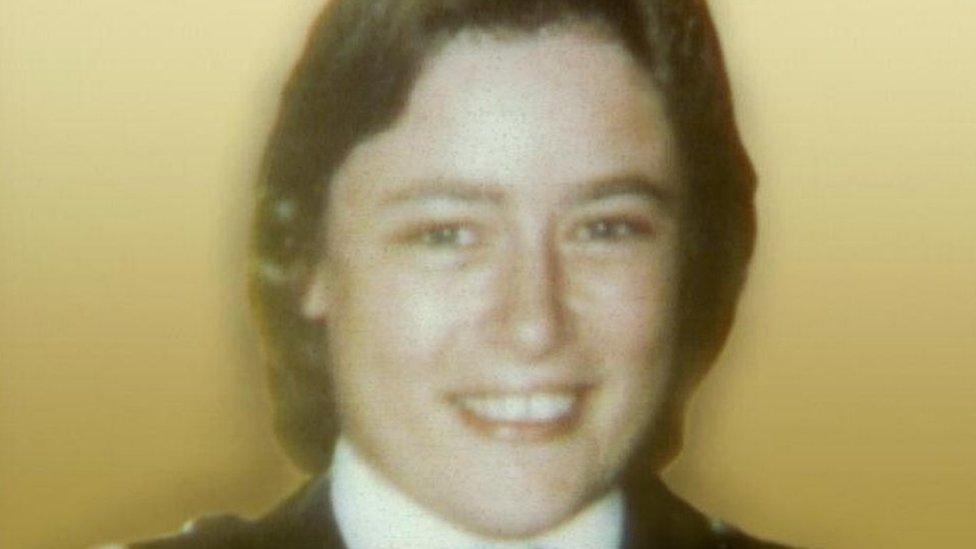Yvonne Fletcher: The 35-year-old vow to a dying friend
- Published
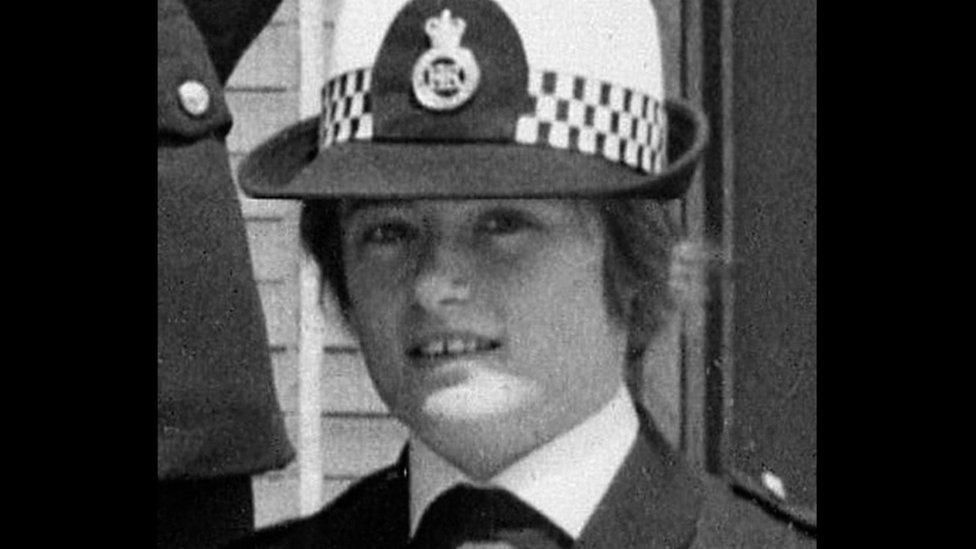
Yvonne Fletcher was 25 when she was killed outside the the Libyan Embassy in central London
Thirty-five years ago a young police officer was shot and killed at a demonstration - her colleague held her as she died. He told the Victoria Derbyshire programme how he has been trying to find her killer ever since.
On 17 April 1984, PC Yvonne Fletcher and PC John Murray were among officers sent to police a small demonstration outside the former Libyan Embassy in central London.
The 25-year-old was hit in the back by a gunshot from a first-floor window, and died in Westminster Hospital a short time later. Her death led to an 11-day siege of the building and the severing of diplomatic links between the UK and Libya.
In her last moments, Mr Murray promised he would find her killers.
"I remember in detail what happened that day," he explains. "One of the main things was that I promised Yvonne as she lay dying that I would bring her killers to justice.
"You've got to remember those were the last words she heard and that was the promise I made and the promise I will fulfil."
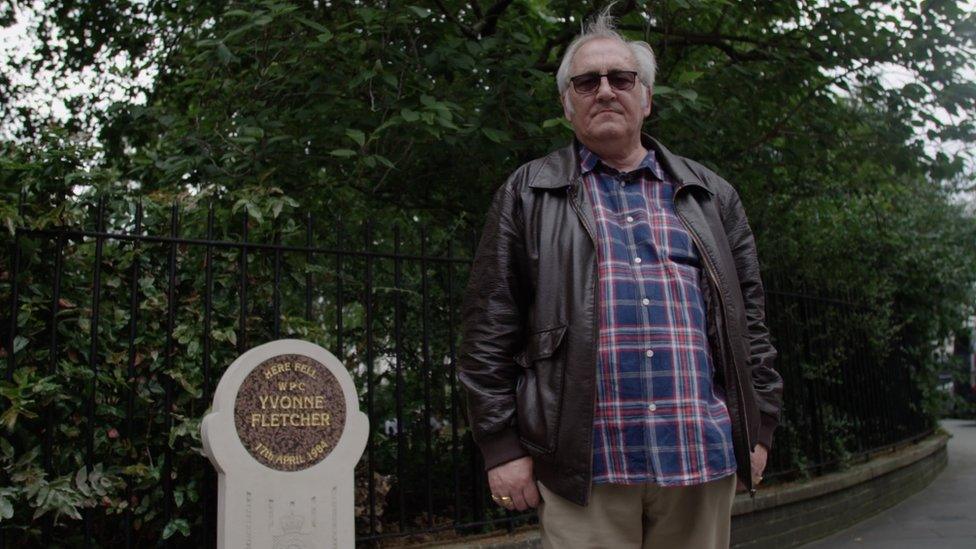
Mr Murray has now launched a civil claim for damages against Saleh Ibrahim Mabrouk, an ex-aide to Libyan leader Col Muammar Gaddafi, to the High Court in London. It aims to force him to appear in court and reveal who shot the officer.
One of a number of Libyans deported from the embassy after the killing, he was arrested by UK police in 2015 in connection with the murder. But he was told in 2017 the case would not proceed and has never been charged. At the time, his son said his father was innocent.
Despite the passage of time, Mr Murray has never lost faith that he will achieve justice.
"It's been difficult, it's been hard, it's been a long fight. But the events that day were horrendous and horrific, and I will keep fighting for her.
"This is my last chance, I've waited 35 years for this. It will happen," he says. "You can never give up hope, that's one thing you will always have."
Lawyers acting for Mr Mabrouk told the BBC: "British police know and accept he was not the person who shot PC Yvonne Fletcher.
"He has previously been interviewed about the events surrounding her death and has fully cooperated with police and security service investigations.
"Mr Mabrouk is no longer permitted to enter the UK by the Home Office. He is therefore unable to attend court to give evidence were the court to invite him to defend the claim."
The Victoria Derbyshire programme brought together Mr Murray with three other colleagues, to pay tribute to Ms Fletcher.

The officer who collected her helmet
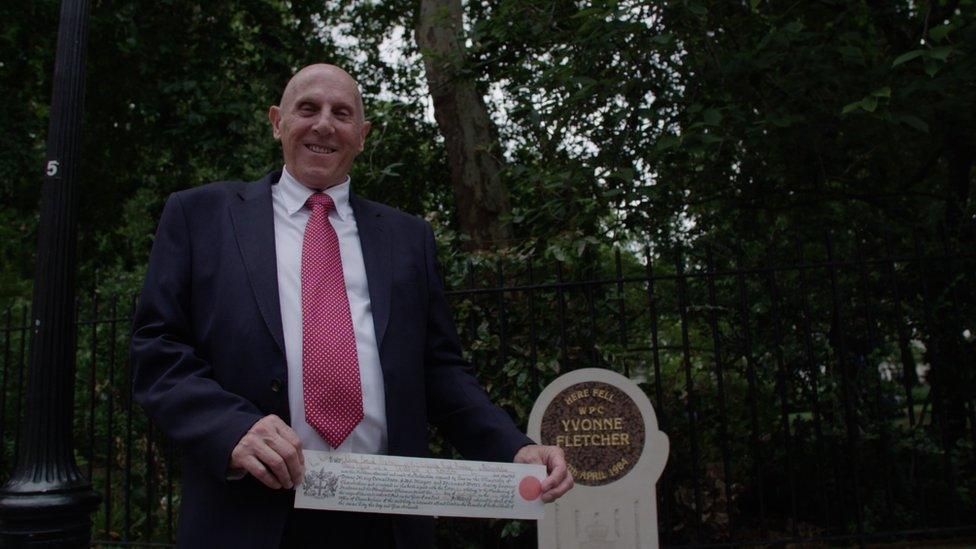
Mr Mabry with his Freedom of the City of London certificate
The police hats belonging to Ms Fletcher, Mr Murray and other officers, remained where they fell during the siege. Requests for her hat to be returned for her funeral were refused by the Libyans, so Clive Mabry decided to take matters into his own hands.
He breached the police cordon and ran across St James's Square to retrieve it. His identity has not been known to the public until now.
"As far as I'm concerned, that hat had to go on the coffin. It's only right," he explains. "They killed her, yet they wanted to stop her having the hat as well. That's taking the mick. That was it, I was going to get it.
"I grabbed my helmet, hat in one hand, saluted the Libyans, I legged it straight back, and was arrested by the inspector and PC further down the road. Very embarrassing really."
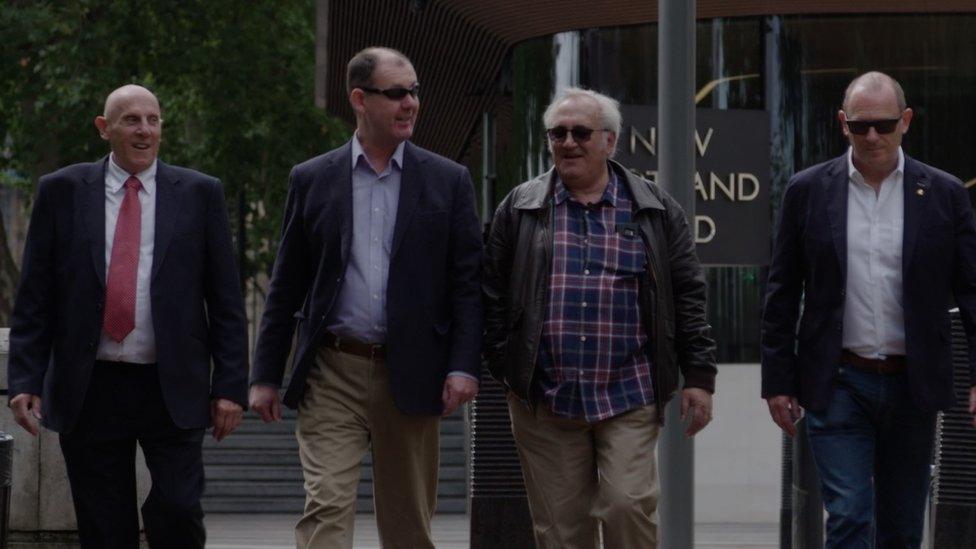
The four retired police officers involved in the incident
Mr Mabry was never charged and his actions received national attention. His efforts appeared on the front page of the Sun and he was granted the Freedom of the City of London.
"It's good - south-east London boy does good," he says.

The firearms officer
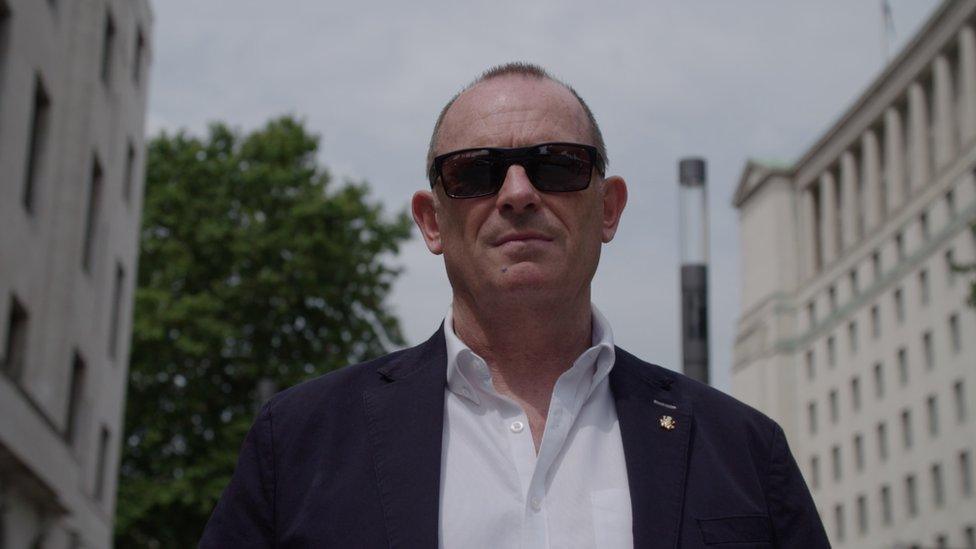
Tony Long was a firearms officer sent to the scene after the shooting.
"We were there dealing with people who had harmed police officers, and we wanted to see them arrested," he says.
When the siege ended, all Libyan diplomats were allowed to leave the embassy and given diplomatic immunity.
"For me that was the worst thing, whenever I come back here [to the embassy], and I come back fairly frequently, was just the fact that we as a country surrendered," he says.
"They were the people that were meant to surrender, the people that came out of that building. We should have been able to put the handcuffs on the person that shot Yvonne. We had to watch them leave."

The ambulance escort
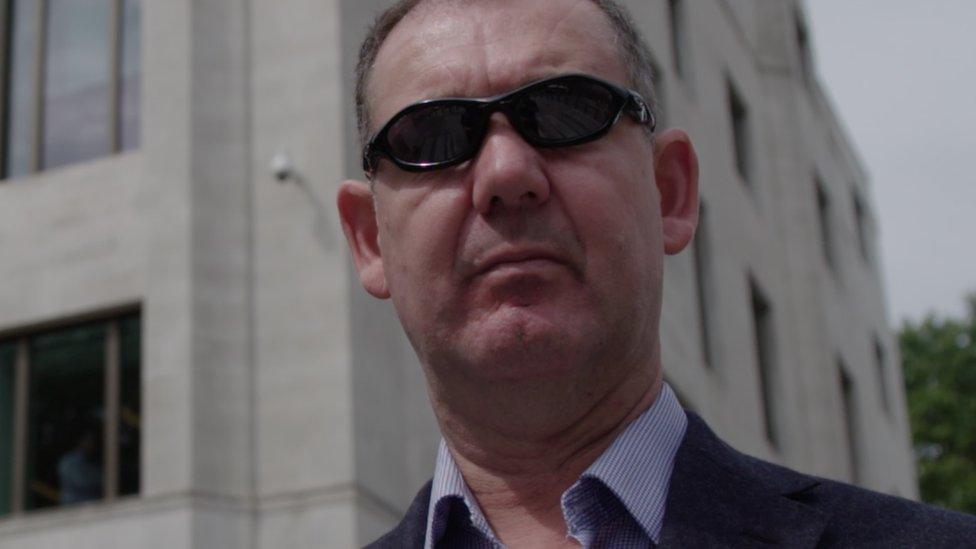
Matt Johnson was close friends with Ms Fletcher, and drove the vehicle that escorted the ambulance as it took her to hospital.
"We received an emergency call over the radio to say could we escort an ambulance to the Westminster Hospital on the hurry-up," he says. "We didn't realise it was a police officer, and we didn't realise it was Yvonne Fletcher."
He says he was "very apprehensive" about revisiting the scene of Ms Fletcher's death with his former colleagues.
"As policemen we are expected to go to places ordinary people won't go and do things ordinary people won't do," he explains.
"When something like that happens, especially when it happens to a close friend, you realise you're not invincible, you're mortal, and in an instant your life can end by doing the job you've been called on to do.
"It had a profound effect on me and eventually resulted in me having to part company with the police."

Follow the BBC's Victoria Derbyshire programme on Facebook, external and Twitter, external - and see more of our stories here.
- Published26 January 2019
